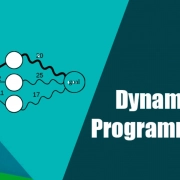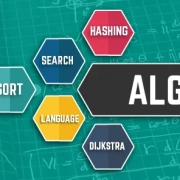Thinking Effectively with Mathematics: Developing Mental Agility and Problem-Solving Ability
While math often seems like a challenging academic discipline, it actually offers a unique playground for sharpening our mental abilities. Beyond equations and formulas, math is a way to develop critical thinking, logical reasoning, and problem-solving skills. In this article, we'll explore the deep connection between math and effective thinking and reveal how this discipline is a powerful catalyst for intellectual growth. Drawing on my own experiences, I'll share this journey with you in a friendly and accessible way. Let's get started!
The Essence of Mathematical Thought
Mathematics is, in essence, a symphony of logic. Its principles are shaped by a reasoning process in which each step is meticulously explained and interconnected. Navigating mathematical concepts forces one to think coherently and systematically, requiring a systematic understanding of the relationships between different elements. This structural elegance fosters an analytical mindset, and this skill extends to many areas of life. For example, when analyzing complex data for a financial project, this orderly approach to mathematical thinking guided me and enabled me to unravel the complexities.
Problem Solving Adventure
Math is like a maze filled with puzzles waiting to be solved. When you encounter a math problem, you enter a systematic problem-solving mode. This involves breaking the problem down into manageable pieces and then piecing them together with creative strategies. The art of solving mathematical problems is very similar to facing real-world challenges. Breaking a complex problem down into smaller, solvable pieces and working through them step by step is a skill that can be used in many areas, from business to everyday life. I once used this approach to simplify a complex shipping plan for a logistics problem, and the process sped up dramatically!
Abstract Thought
Mathematics deals with abstract concepts; it often deals with ideas that have no physical equivalent. This abstractness pushes learners to push their mental boundaries and allows them to visualize relationships beyond concrete reality. The ability to think abstractly enables us to understand the principles underlying various phenomena. Furthermore, the ability to transition from specific examples to general concepts is a cornerstone of mathematical thinking. This skill fosters the capacity to recognize universal truths and apply them in diverse contexts. In one data science project, I worked with abstract models to extract general trends from complex data sets, and this increased the project's success.
Sharp Expression
In mathematics, precision is everything. Expressing mathematical ideas requires clear and accurate communication. This emphasis on precision teaches students to convey ideas clearly and coherently. This skill extends beyond the realm of mathematics; the ability to structure ideas orderly and present them elegantly strengthens general communication skills. When preparing a presentation at work, I was able to convey complex ideas simply and effectively thanks to this disciplined approach to mathematical thinking.
A Trial-and-Error Journey
The search for mathematical solutions is often a journey of trial and error. Math enthusiasts try different approaches, encounter failures, and continually refine their strategies. This iterative process builds resilience and teaches the wisdom of learning from failure. The resilience forged in this challenging environment of mathematical discovery resonates with real life. The ability to encounter obstacles, learn from them, and continue stronger is an invaluable life skill. On an algorithm optimization project, after failing repeatedly, I persevered and found a better solution, demonstrating the power of perseverance.
Critical Thinking and Informed Decision Making
Examining mathematical problems fosters critical thinking. Students are encouraged to question assumptions, explore alternative approaches, and evaluate the strength of arguments. These sharpened critical thinking skills extend beyond mathematical equations. They develop the ability to analyze evidence, solve complex scenarios, and make informed decisions based on logic. In one business decision, I developed a more robust strategy by analyzing data with mathematical thinking.
Clear and Sharp Communication
Mathematics requires precise and clear communication. To express mathematical ideas accurately, thoughts must be clearly articulated. This skill is also critical in everyday communication; the ability to articulate ideas clearly improves general communication skills. Mathematics teaches me how to structure ideas logically and present them coherently. This has given me a significant advantage when discussing complex technical topics with my colleagues.
Conclusion
To view mathematics solely as a field of computation is to ignore its profound potential as a catalyst for effective thinking. This discipline encourages structured thinking, solving complex problems, and developing solution strategies. Mathematics plants the seeds of logical reasoning, problem-solving skills, abstract thought, and clear expression, seeds that blossom in every field of human endeavor. The combination of mathematics and effective thinking enriches our understanding of the universe and gives us the wisdom to succeed in a complex, ever-changing world. When we embark on this mysterious journey with mathematics, we embark on an adventure of sharpening our mental abilities; this adventure opens the doors to effective thinking and enables us to achieve incredible success.
In what areas have you used math to improve your thinking skills? Did you have an interesting experience? Share it in the comments so we can discuss it together! Check out my blog or contact me for more tips!







